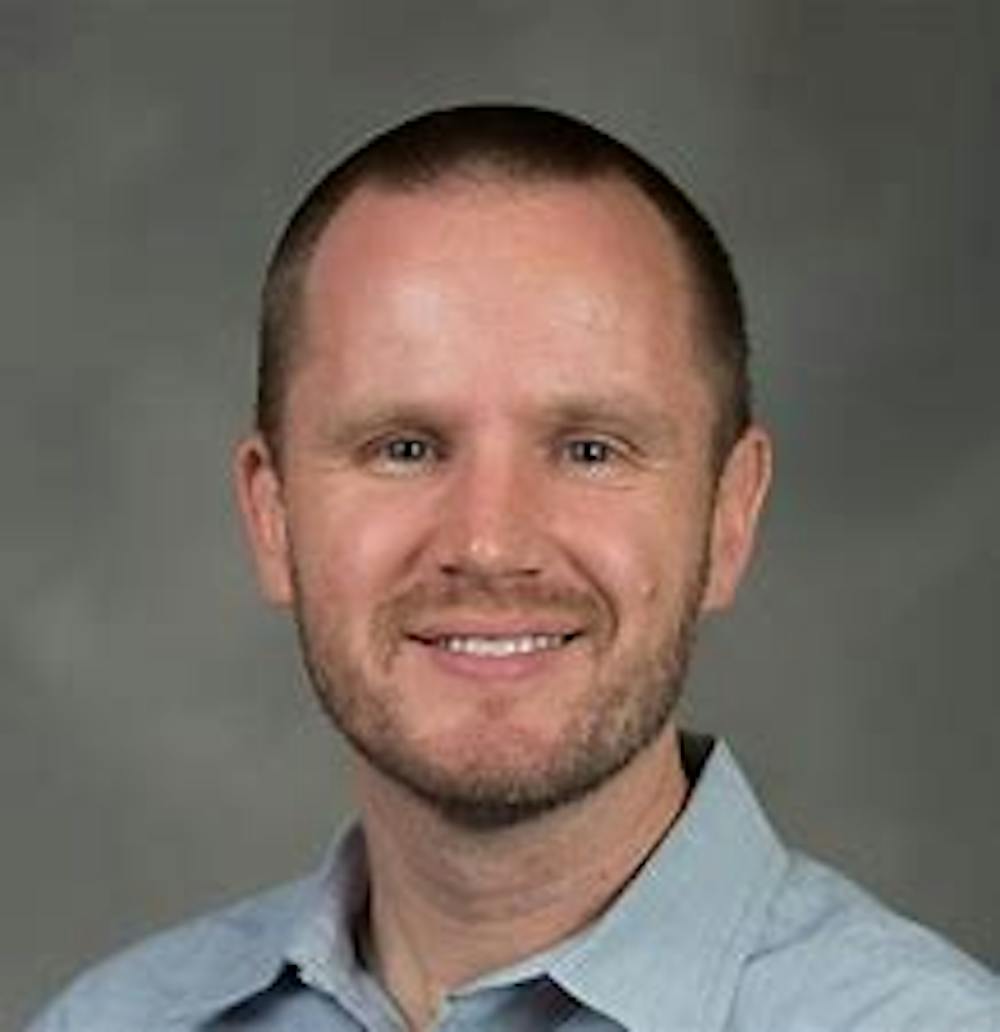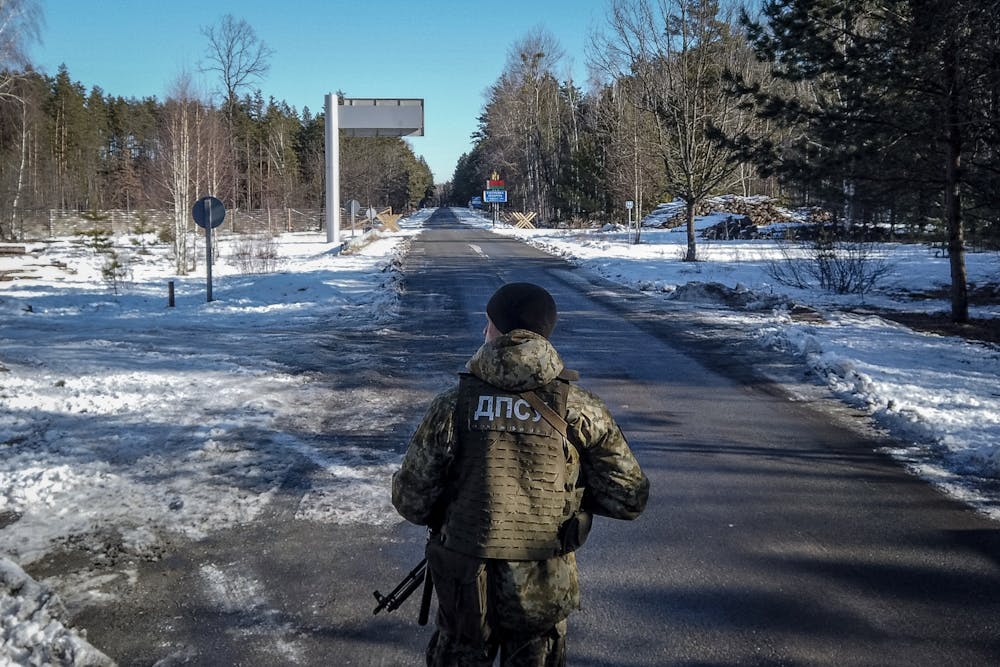In recent months, Russia has amassed troops on the Ukrainian border with both Russia and Belarus, increasing tensions between Russia and Ukraine. Russia previously annexed the Crimean peninsula after a referendum in 2014. Fighting has continued to occur in Eastern Ukraine for the past seven years between Ukrainian forces and Russian-backed separatists which have occupied the Donbass region in eastern Ukraine since 2014.

Jason Kirk provided historical context on this ongoing situation and is an expert in international relations and politics relating to India and is a professor of political science and policy studies at Elon University. Kirk discusses the current conflict between Russia and Ukraine.
This interview has been edited for clarity.
What events in the past have set the stage for tension between Russia and Ukraine?
“Well this goes back to at least 2014 and the so-called Maidan Revolution in Kyiv in Ukraine…but that really involved what Ukraine's relationship to Europe would be, and whether it would be really have a pro-Russian leadership or a pro-Western leadership major demonstrations in a really big event that followed was Russia's annexation of Crimea, which had been Ukrainian since the breakup of the Soviet Union. It's something that the United States and NATO Allies were against and really still haven't recognized, but Russia has made it the ground reality ever since. Russia historically was always interested in a warm water port, you have that there [in Sevastopol]. The other thing that began in 2014, and has been going on ever since, is the conflict in the Donbass, which is eastern Ukraine, bordering Russia, where you got pro-Russian Ukrainians, Russian speaking Ukrainians that you've had from the beginning, you've had Russian support to those fighters, but also you've had Russian forces.
So called Little Green Men for plausible deniability. It's a term that scholars came up with and analysts came up with pretty quickly was hybrid war. There's a way in which Russia is directly engaged, but it also has some elements of what we used to call proxy wars, back in the Cold War, where either of those superpowers would fight through local proxies. That's the hybridization of it, it's got a little bit about both.”
How does the current situation in Ukraine compare to the Russian annexation of Crimea and the separatists in eastern Ukraine in 2014?
“I think it's a significant escalation. It's an even more serious situation, and that was a serious situation at the time. Many analysts have said the stakes here are the highest as they've been in Europe since the 1940s. What Russia is poised to do is potentially invade all of Ukraine.”
What has been the response from Ukraine and the Ukrainian government?
“It's tough for them because their president, [Volodymyr] Zelensky, has been the international spotlight. For a while, he became known to most Americans during the first impeachment of then-President Trump involving Ukraine. And so I think he's just trying to encourage calm among his people. He's trying not to scare international investors and the international community more generally, but it's very tense. I just can't imagine being in this position right now. He doesn't come from a political background originally.”
What is the tension between NATO and Russia?
“I mean, this goes back years. Russia has for long been concerned about NATO expansion. What it sees is NATO expansions were right up to its doorstep and regard Ukraine as a part of the former Soviet Union and Vladimir Putin of course called the breakup of the Soviet Union, the greatest geopolitical catastrophe of the 20th century, but also sort of a buffer area between Russia and the rest of Europe. There's a sense in which part of what might be happening now, it seems like a long way to go to make this happen. But part of what Putin's strategy might be is to just see if he can weaken NATO just a bit. If he can expose tensions within NATO, particularly between the United States and other major players like Germany that are more dependent on Russia for energy resources, I think ultimately, there's only really one person who knows what's going to happen and that's Vladimir Putin and he may just be making his play for the history books.”
How are western nations and NATO responding to the crisis?
“It's tough because whatever transpired between them, [French President] Macron said he got some kind of guarantee and the Kremlin quickly denied that they had done such a thing. Recently the new German Chancellor [Olaf Scholz] and President Biden stood shoulder to shoulder but the White House press corps asked the German chancellor if it meant that Germany would sort of abandon this pipeline plan that's in development, in order to isolate Russia. He just said, you know, we have a strong agreement between us and the United States and among NATO; he wouldn't directly answer that question. This is probably happening because among other factors, rightly or wrongly, Vladimir Putin sees Joe Biden as a weak president … that is sort of the biggest foreign policy testing you face for this. But it looks like the Biden administration is trying to, at least in terms of information and actions taken, seize the initiative on this a little bit. A big part of Russia's hybrid war strategies is disinformation. And you saw the developments last week where the Americans are saying, well, the Russians were gonna put out this fake video as a pretext for invasion and we have intelligence that has led to briefings with the American press, but also to this, essentially, this evacuation order that Americans should get out. In terms of at least the initial statements and information it looks like the Biden Administration is trying to seize the initiative there, but it's tough … there isn't a strong appetite among most Americans for significant military action. Should Russia invade, how do we deter? That seems to be a moving target with Vladimir Putin.”


